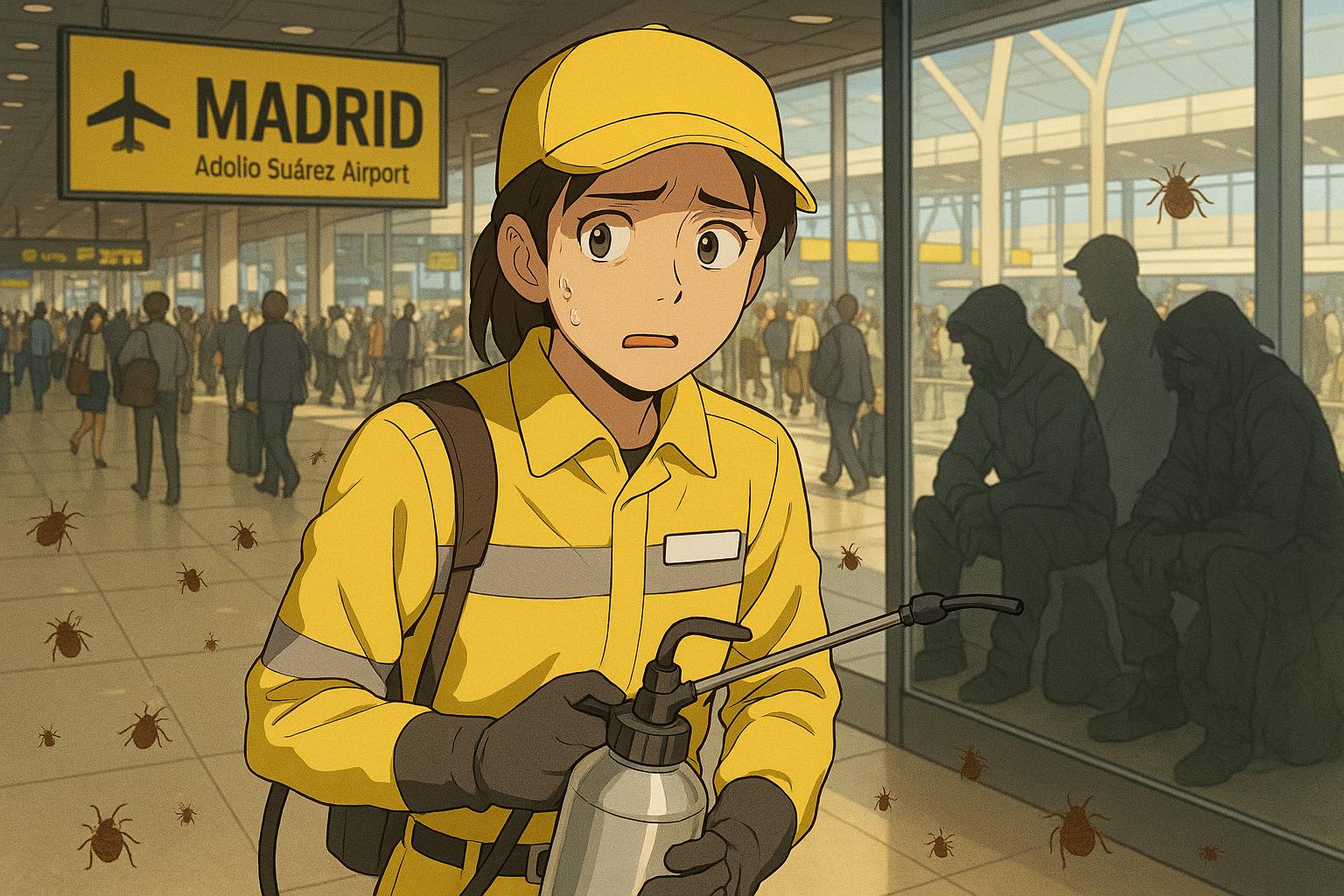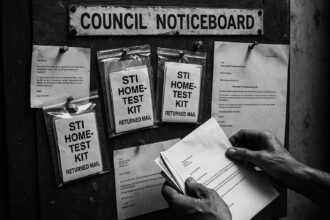Allegations of biting insects at Madrid-Barajas spark pest control efforts and controversy as Aena denies widespread infestation while homeless accommodation policies face criticism from charities.
Recent reports have emerged from Madrid’s Adolfo Suárez Madrid-Barajas Airport regarding allegations of a biting insect infestation, prompting an urgent response from airport management. Workers have voiced concerns over recent experiences of being bitten while on duty, subsequently leading the airport authorities to enlist pest control services to address the claims. Photographic evidence provided by employees has further escalated the situation, creating unease among staff and passengers alike.
In the wake of these reports, Aena, the state-owned operator of Madrid-Barajas and 45 other airports in Spain, has publicly denied the existence of a bedbug infestation. Despite acknowledging that a pest control service was brought in after several staff reported bites, Aena asserted through an “urgent statement” that no evidence of a widespread problem was found. They did admit to detecting insects in “very limited” areas and confirmed that inspections, surveillance, and preventive treatments were underway.
The airport, a crucial entry point for international visitors and tourists, has been the focus of media scrutiny. Reports circulating on social platforms have suggested a potential link between the insect sightings and the presence of homeless individuals seeking refuge within the airport’s terminals. However, Aena has stated that the origin of any insect presence remains unconfirmed, although management is taking measures to address the situation, including a crackdown on homeless people using the airport as overnight accommodation.
The number of homeless individuals at the airport has sharply increased, especially since the discontinuation of city-funded winter relief initiatives. According to a study by the charity Caritas, as many as 421 homeless individuals were counted sleeping in Terminal 4. The charity, which provides assistance to the homeless, has expressed concerns over measures implemented by Aena that discourage the use of the airport as a shelter. Charities like Bokatas, which distribute food and hygiene kits, have also faced obstacles, with their staff reportedly being barred from entering the airport to assist those in need.
Gaspar García, a coordinator for Bokatas, highlighted the adverse effects of these measures, stating that restricting access has led to increased vulnerability among homeless individuals. Previously, many could remain inconspicuous among travellers; however, changes like furniture removal and uncomfortable air conditioning have forced them into more conspicuous positions. “These decisions have only created more conflict,” García remarked, underlining the struggles faced by individuals living in what should be a public space.
The tense atmosphere at the airport illustrates the complex interplay between public health concerns, homelessness, and the management of busy transport hubs. While Aena has vowed to work alongside cleaning and pest control services to ensure cleanliness and safety, the interwoven issues of homelessness and public perception will likely remain contentious as they strive to balance these often conflicting priorities.
Source: Noah Wire Services
- https://www.liverpoolecho.co.uk/travel/madrid-airport-bedbug-infestation-denied-31659071 – Please view link – unable to able to access data
Noah Fact Check Pro
The draft above was created using the information available at the time the story first
emerged. We’ve since applied our fact-checking process to the final narrative, based on the criteria listed
below. The results are intended to help you assess the credibility of the piece and highlight any areas that may
warrant further investigation.
Freshness check
Score:
9
Notes:
The narrative references recent reports and ongoing issues at Madrid-Barajas Airport, suggesting it is current. However, there’s no specific mention of when these events started, which could indicate it might be based on recent developments rather than entirely new information.
Quotes check
Score:
8
Notes:
The quote from Gaspar García, coordinator for Bokatas, seems original as it does not directly reference any widely known or previously reported statements. However, it lacks specific evidence of being the first use of this quote.
Source reliability
Score:
8
Notes:
The narrative originates from the Liverpool Echo, which is a well-known regional publication. While it is generally reliable, it is not as prominent globally as major news outlets like the BBC or Reuters.
Plausability check
Score:
9
Notes:
The claims about insect sightings and homelessness issues are plausible given similar scenarios at other public spaces. The involvement of Aena and charities adds credibility to the narrative.
Overall assessment
Verdict (FAIL, OPEN, PASS): PASS
Confidence (LOW, MEDIUM, HIGH): HIGH
Summary:
The narrative appears to be based on recent events, with plausible claims supported by the involvement of relevant parties. The reliability of the source and the originality of the quotes further support its credibility.













